Deputy Foreign Minister welcomes the new UNICEF Representative to Mozambique
“It is possible to end hunger in Mozambique”

WFP Mozambique Twitter (File photo)
Seven million Mozambicans live with food insecurity, but the director of the World Food Program in Mozambique, Karin Manente, believes it is possible to end hunger in the country by 2030.
“This is our aspiration: zero hunger. It is possible,” she told Lusa in an interview in Maputo. “But policies connected to reality on the ground and multi-sectoral vision are so far lacking”, she stressed.
Mozambique “has already taken important steps” by reducing the proportion of the population subject to food insecurity, defined as a person not knowing where their next meal is coming from, from 50 to 25 percent in the last ten years, according to the head of the United Nations agency.
But 25 percent of the WFP-estimated 28 million people in the country means that seven million Mozambicans still live in the shadow of hunger.
“There are already national policies and programs” to eradicate the problem, Manente admits. “What we need now is to operationalise them,” and get all those involved moving from words to practice.
It may seem easy, “but it is not,” she say, because “there is a lot of work to do” to ensure that food reaches everyone routinely.
For example, there is hunger in parts of the country where there crop are insufficient, but in other areas “there are surpluses”. One of the WFP tasks has been to buy these and get them to where they are needed.
The WFP simultaneously tries to empower small producers to produce quality food and improve storage.
Manente says that if all the good practices and policies already written were put into practice, “zero hunger and sustainable agriculture”, the second UN 2030 sustainable development goal (SDG), would be a possibility.
SDG 2 governs the WFP’s strategic plan for the next five years in Mozambique, a plan that anticipates an annual budget of EUR 140 million (still to be raised) to support an average one million people per year.
Most of the money goes to direct food distribution through delivery in kind or through vouchers to redeem in the markets.
Then there is analysis and training, in partnership with various entities, and part of the resources “directed to the government and another part to the partners and communities. Very little remains for the WFP itself,” Manente says.
The permanent truce announced by the armed wing of the main opposition party, Renamo, has put an end to the risks of further clashes with the military in the centre of the country, good news for WFP intervention.
“The operational impact” of hostilities between 2015 and 2016 “was not very large, but of course the situation has now improved,” Manente revealed.


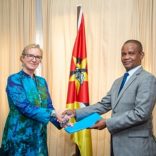
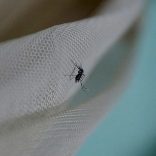


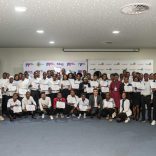
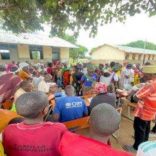



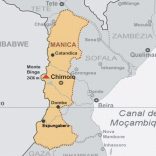
Leave a Reply
Be the First to Comment!
You must be logged in to post a comment.
You must be logged in to post a comment.